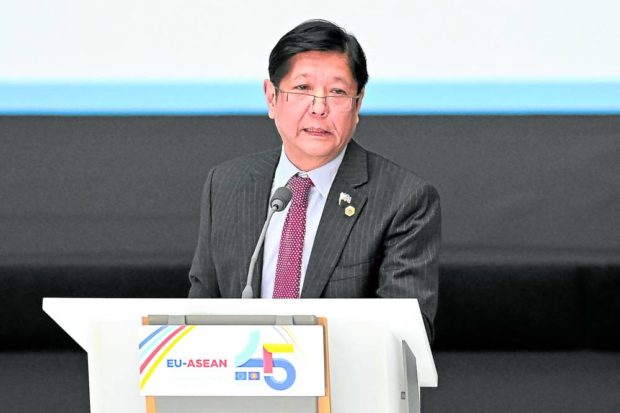Marcos Jr. OKs temporary tariff cuts on imported e-vehicles, spare parts

President Ferdinand Marcos Jr. FILE
MANILA, Philippines — President Ferdinand “Bongbong” Marcos Jr. has approved to temporarily remove the tariff on imported electric vehicles and lowering the tax rate on their parts and components.
Marcos signed last Jan. 13 Executive No. 12, which cuts tariff rates on certain e-vehicles such as passenger cars, buses, minibuses, vans, trucks, motorcycles, tricycles, scooters and bicycles would be cut to zero for a five-year period.
Tariffs on certain EV parts and components would also be lowered to 1 percent from 3 percent also for five years.
According to the order, cutting import duties will “help boost the e-vehicle market in the country, support the transition to emerging technologies and encourage consumers to consider electric vehicles as a cleaner and greener transportation option.”
The order noted that the transportation sector is one of the largest sources of air pollution and energy-related greenhouse gas emissions in the country at 34%, with road transportation accounting for 80% of those emissions.
Article continues after this advertisement“The state has the paramount obligation to protect the health and well-being of the people from hazards of pollution and greenhouse gases,” it read.
Article continues after this advertisementIn November last year, the National Economic Development Authority (NEDA) endorsed the temporary reduction of the most-favored nation (MFN) tariff rates on certain e-vehicles and their parts and components for five years.
On Nov. 24, 2022, the NEDA Board endorsed the temporary reduction of the Most-Favored Nation (MFN) tariff rates on certain e-vehicles and their parts and components for a period of five years.
In its recommendation, the NEDA proposed to temporarily reduce the MFN tariff rates to zero percent for five years on completely built up (CBU) units of certain electric vehicles, except for hybrid-type EVs.
According to the newly-signed order, the MFN tariff rates shall be subject to review after one year from the implementation of the order.
The NEDA is directed to submit to the President, through the Office of the Executive Secretary, its findings and recommendations on the matter.